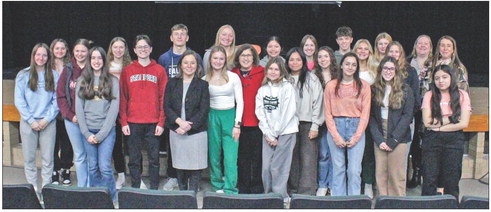Lt. Gov. Rodriguez visits Colby School District


By Neal Hogden
Mental health was the topic of discussion as Wisconsin Lieutenant Governor Sara Rodriguez came to Colby schools on Monday, Feb. 12.


By Neal Hogden
Mental health was the topic of discussion as Wisconsin Lieutenant Governor Sara Rodriguez came to Colby schools on Monday, Feb. 12.